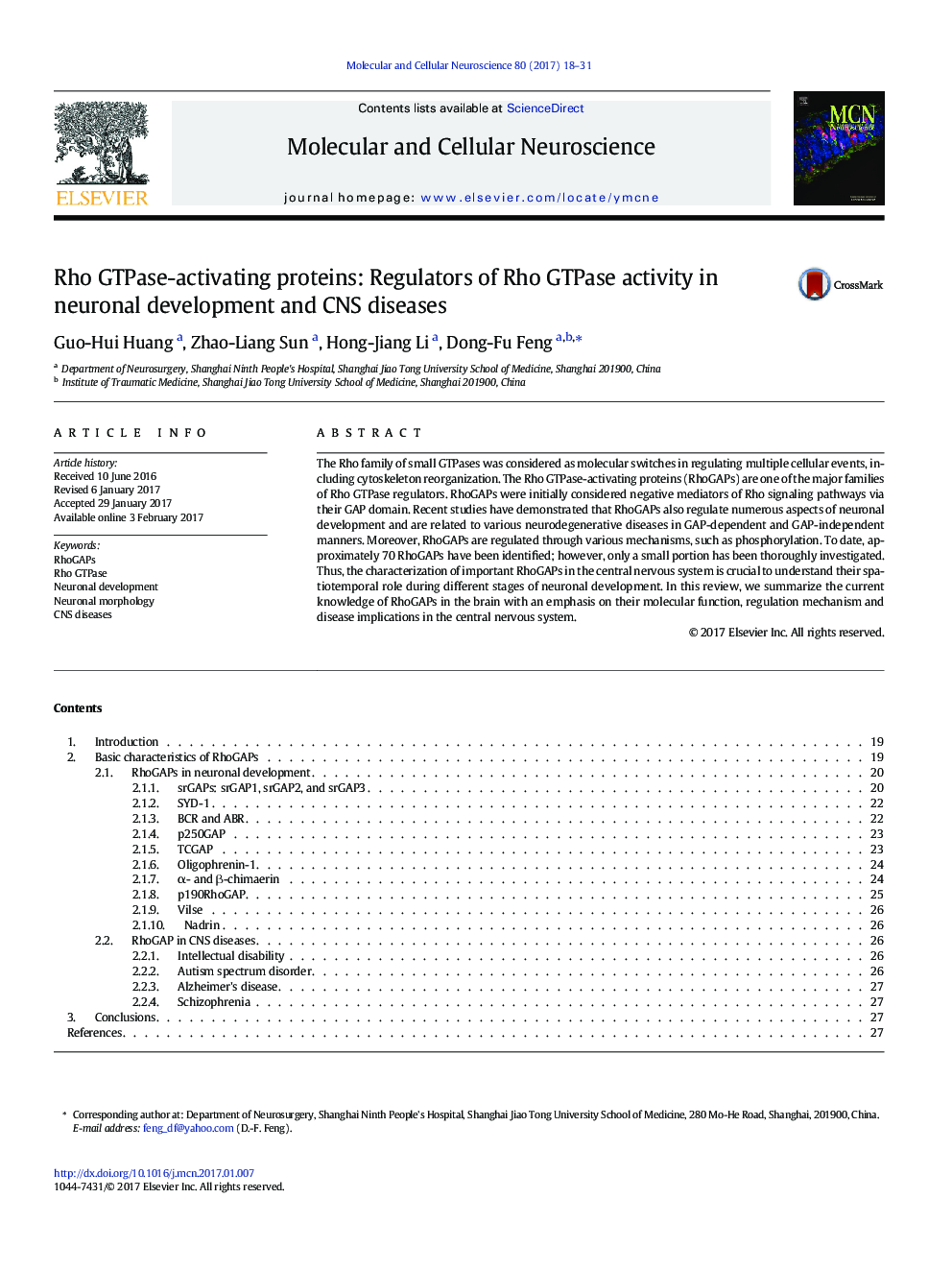| Article ID | Journal | Published Year | Pages | File Type |
|---|---|---|---|---|
| 5534376 | Molecular and Cellular Neuroscience | 2017 | 14 Pages |
â¢Defects in neuronal development lead to CNS disease.â¢Brain-specific RhoGAPs play a pivotal role in various aspects of neuronal development.â¢Each RhoGAP has a unique role via interacting with different binding partners.â¢RhoGAPs are also mediated by upstream proteins in different regulatory ways.â¢Dysregulation of RhoGAPs contributes to the progression of CNS diseases.
The Rho family of small GTPases was considered as molecular switches in regulating multiple cellular events, including cytoskeleton reorganization. The Rho GTPase-activating proteins (RhoGAPs) are one of the major families of Rho GTPase regulators. RhoGAPs were initially considered negative mediators of Rho signaling pathways via their GAP domain. Recent studies have demonstrated that RhoGAPs also regulate numerous aspects of neuronal development and are related to various neurodegenerative diseases in GAP-dependent and GAP-independent manners. Moreover, RhoGAPs are regulated through various mechanisms, such as phosphorylation. To date, approximately 70 RhoGAPs have been identified; however, only a small portion has been thoroughly investigated. Thus, the characterization of important RhoGAPs in the central nervous system is crucial to understand their spatiotemporal role during different stages of neuronal development. In this review, we summarize the current knowledge of RhoGAPs in the brain with an emphasis on their molecular function, regulation mechanism and disease implications in the central nervous system.
